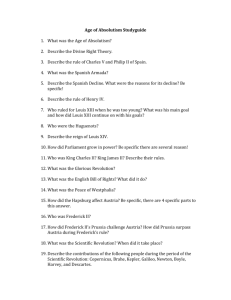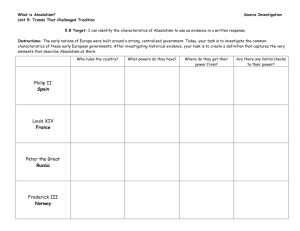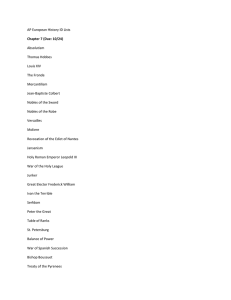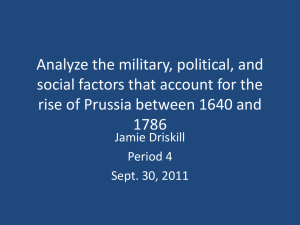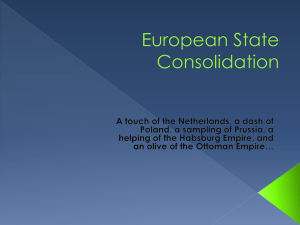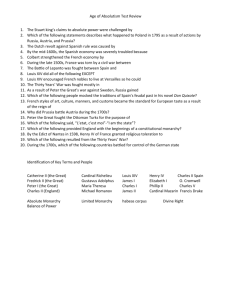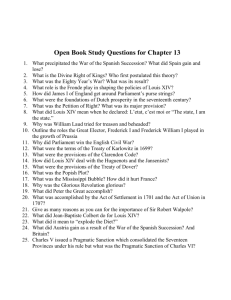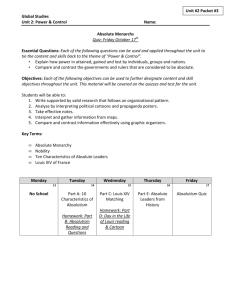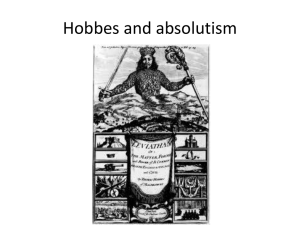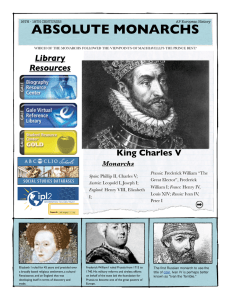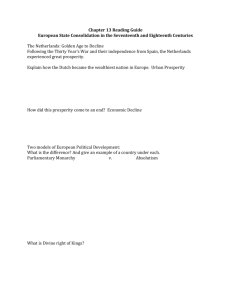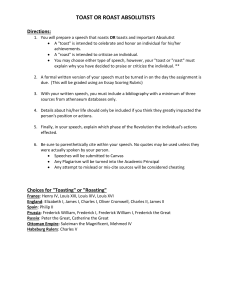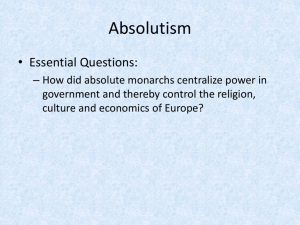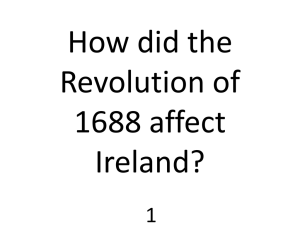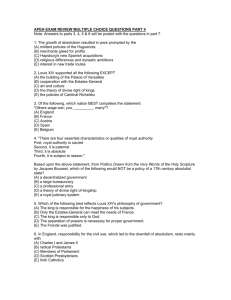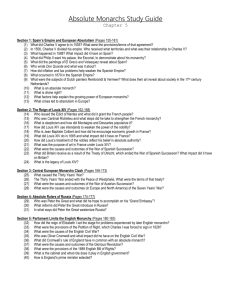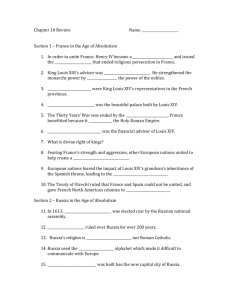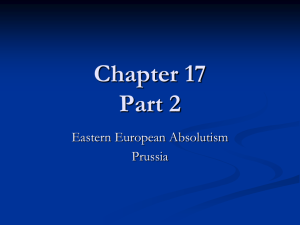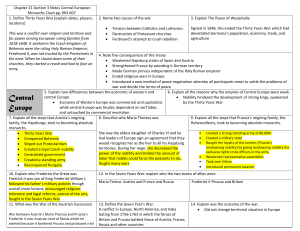Study Guide
advertisement
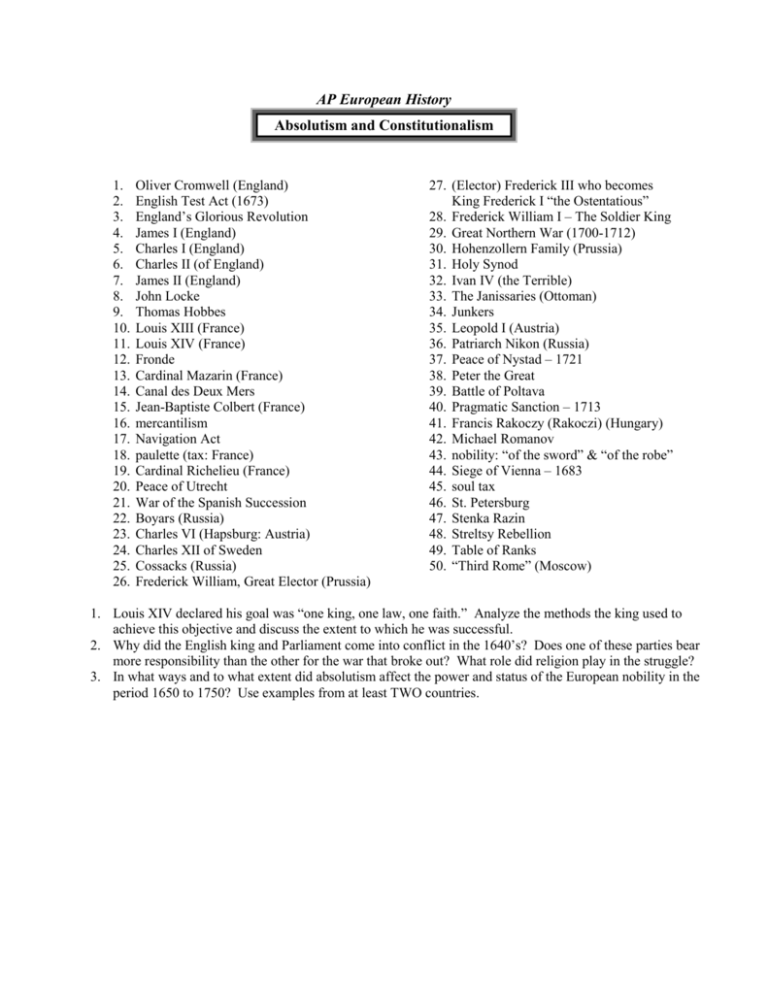
AP European History Absolutism and Constitutionalism 1. 2. 3. 4. 5. 6. 7. 8. 9. 10. 11. 12. 13. 14. 15. 16. 17. 18. 19. 20. 21. 22. 23. 24. 25. 26. Oliver Cromwell (England) English Test Act (1673) England’s Glorious Revolution James I (England) Charles I (England) Charles II (of England) James II (England) John Locke Thomas Hobbes Louis XIII (France) Louis XIV (France) Fronde Cardinal Mazarin (France) Canal des Deux Mers Jean-Baptiste Colbert (France) mercantilism Navigation Act paulette (tax: France) Cardinal Richelieu (France) Peace of Utrecht War of the Spanish Succession Boyars (Russia) Charles VI (Hapsburg: Austria) Charles XII of Sweden Cossacks (Russia) Frederick William, Great Elector (Prussia) 27. (Elector) Frederick III who becomes King Frederick I “the Ostentatious” 28. Frederick William I – The Soldier King 29. Great Northern War (1700-1712) 30. Hohenzollern Family (Prussia) 31. Holy Synod 32. Ivan IV (the Terrible) 33. The Janissaries (Ottoman) 34. Junkers 35. Leopold I (Austria) 36. Patriarch Nikon (Russia) 37. Peace of Nystad – 1721 38. Peter the Great 39. Battle of Poltava 40. Pragmatic Sanction – 1713 41. Francis Rakoczy (Rakoczi) (Hungary) 42. Michael Romanov 43. nobility: “of the sword” & “of the robe” 44. Siege of Vienna – 1683 45. soul tax 46. St. Petersburg 47. Stenka Razin 48. Streltsy Rebellion 49. Table of Ranks 50. “Third Rome” (Moscow) 1. Louis XIV declared his goal was “one king, one law, one faith.” Analyze the methods the king used to achieve this objective and discuss the extent to which he was successful. 2. Why did the English king and Parliament come into conflict in the 1640’s? Does one of these parties bear more responsibility than the other for the war that broke out? What role did religion play in the struggle? 3. In what ways and to what extent did absolutism affect the power and status of the European nobility in the period 1650 to 1750? Use examples from at least TWO countries.
